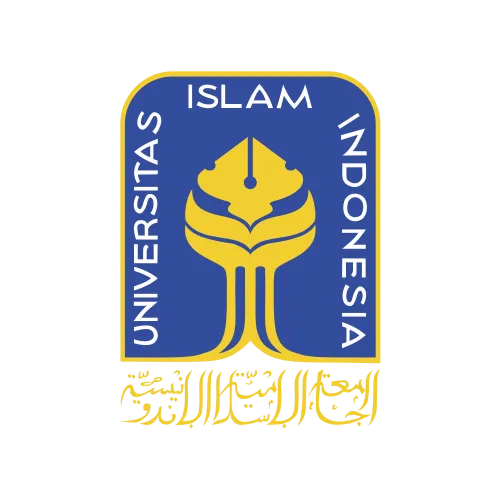Al-Jauziyah, I. Q. (2023). Madārij al-Sālikīn. Dar-Hadis.
Armenta, C. N., Fritz, M. M., & Lyubomirsky, S. (2017). Functions of positive emotions: Gratitude as a motivator of self-improvement and positive change. Emotion Review, 9(3), 183–190. https://doi.org/10.1177/1754073916669596
Cahyandari, R., Nashori, F., & Sulistyarini, R. I. (2015). Efektivitas pelatihan kebersyukuran untuk meningkatkan kualitas hidup pasien penyakit paru obstruktif kronik (PPOK). Jurnal Intervensi Psikologi (JIP), 7(1), 1–14. https://doi.org/10.20885/intervensipsikologi.vol7.iss1.art1
Chan, Y., Chan, Y. Y., Cheng, S. L., Chow, M. Y., Tsang, Y. W., Lee, C., & Lin, C.-Y. (2017). Investigating quality of life and self-stigma in Hong Kong children with specific learning disabilities. Research in Developmental Disabilities, 68, 131–139. https://doi.org/10.1016/j.ridd.2017.07.014
Creswell, J. W. (2014). Research Design: Qualitative, Quantitative, and Mixed Methods Approaches (4th ed.). SAGE Publications.
Diener, E., Emmons, R. A., Larsen, R. J., & Griffin, S. (1985). The satisfaction with life scale. Journal of Personality Assessment, 49(1), 71–75. https://doi.org/10.1207/s15327752jpa4901_13
Emerson, E., & Llewellyn, G. (2023). The wellbeing of women and men with and without disabilities: Evidence from cross-sectional national surveys in 27 low- and middle-income countries. Quality of Life Research, 32(2), 357–371. https://doi.org/10.1007/s11136-022-03268-y
Emmons, R. A., & McCullough, M. E. (2003). Counting blessings versus burdens: An experimental investigation of gratitude and subjective well-being in daily life. Journal of Personality and Social Psychology, 84(2), 377–389. https://doi.org/10.1037/0022-3514.84.2.377
Fakhrunnisak, D., & Patria, B. (2022). The positive effects of parents’ education level on children’s mental health in Indonesia: A result of longitudinal survey. BMC Public Health, 22, Article 949. https://doi.org/10.1186/s12889-022-13380-w
Fauzi, M. (2013). Hubungan dorongan keluarga dan kepuasan hidup lansia berdasarkan status perkawinan. Psychological Journal: Science and Practice, 1(3).
Johnson, C. P., Myers, S. M., & the Council on Children With Disabilities. (2016). Identification and evaluation of children with autism spectrum disorders. Pediatrics, 120(5), 1183–1215. https://doi.org/10.1542/peds.2007-2361
Ikhwanisifa, Marettih, A. K. E., Susanti, R., & Zahira, G. R. (2024). Peran dukungan keluarga dan kebersyukuran terhadap kualitas hidup keluarga pada orang tua dengan anak berkebutuhan khusus. Generasi Emas: Jurnal Pendidikan Islam Anak Usia Dini, 7(1), 13–20.
Kurniawan, I. N., Romdhon, A., Akbar, P. L., & Endah, N. (2012). Pengembangan psychological measures of Islamic gratitude (PMIG-Ukuran-ukuran psikologis kebersyukuran dalam perspektif Islam).
Laraswati, A. P., & Jannah, M. (2014). Kepuasan hidup lansia di panti werdha. Character: Jurnal Penelitian Psikologi, 3(2), 1–6.
Lai, J. K. Y., & Weiss, J. A. (2017). Priority service needs and receipt across the lifespan for individuals with autism spectrum disorder. Autism Research, 10(8), 1436–1447. https://doi.org/10.1002/aur.1786
Lee, J., & Thompson, D. (2018). Parent-teacher partnerships: The role of communication in supporting children’s development. Early Child Development and Care, 188(3), 321–332. https://doi.org/10.1080/03004430.2016.1213685
McCullough, M. E., Emmons, R. A., & Tsang, J.-A. (2002). The grateful disposition: A conceptual and empirical topography. Journal of Personality and Social Psychology, 82(1), 112–127. https://doi.org/10.1037/0022-3514.82.1.112
Mirnawati. (2019). Anak berkebutuhan khusus: Hambatan majemuk. Deepublish.
Nura, A., & Sari, K. (2018). Kebersyukuran dan kepuasan hidup pada orangtua dengan anak berkebutuhan khusus. Jurnal Ecopsy, 5(2), 73. https://doi.org/10.20527/ecopsy.v5i2.5041
Prabowo, A. (2018). Kebersyukuran dan kepuasan hidup pada orangtua dengan anak berkebutuhan khusus. Psikologika: Jurnal Pemikiran Dan Penelitian Psikologi, 23(1), 41–51. https://doi.org/10.20885/psikologika.vol23.iss1.art4
Rahman, N. N., Nashori, F., & Rumiani. (2022). Pelatihan kebersyukuran untuk meningkatkan kesejahteraan subjektif pada remaja yang orangtuanya bercerai. Proyeksi, 17(1), 100–111.
Rash, J. A., Matsuba, M. K., & Prkachin, K. M. (2011). Gratitude and well‐being: Who benefits the most from a gratitude intervention? Applied Psychology: Health and Well-Being, 3(3), 350–369. https://doi.org/10.1111/j.1758-0854.2011.01058.x
Salvador-Ferrer, C. (2016). The relationship between gratitude and life satisfaction in a sample of Spanish university students. Anales de Psicología, 33(1), 114–119. https://doi.org/10.6018/analesps.32.3.226671
Sansone, R. A., & Sansone, L. A. (2010). Gratitude and well being: The benefits of appreciation. Psychiatry (Edgmont), 7(11), 18–22.
Shenaar-Golan, V. (2016). The subjective well-being of parents of children with developmental disabilities: The role of hope as predictor and fosterer of well-being. Journal of Social Work in Disability & Rehabilitation, 15(2), 77–95. https://doi.org/10.1080/1536710X.2016.1162119
Sim, J., & Wright, C. C. (2005). The kappa statistic in reliability studies: Use, interpretation, and sample size requirements. Physical Therapy, 85(3), 257–268. https://doi.org/10.1093/ptj/85.3.257
Smith, L. E., Greenberg, J. S., & Mailick, M. R. (2017). The family context of autism spectrum disorders: Influence on the behavioral phenotype and quality of life. Child and Adolescent Psychiatric Clinics of North America, 26(1), 143–150. https://doi.org/10.1016/j.chc.2016.08.004
Sulaeman, R. A. (2023). Pengaruh store atmosphere dan kualitas produk terhadap keputusan pembelian di Crito Coffee [Undergraduate Thesis]. Universitas Pendidikan Indonesia.
Sulastina, & Rohmatun. (2018). Hubungan antara rasa syukur dengan kepuasan hidup pada orang tua yang memiliki anak berkebutuhan khusus. Prosiding Seminar Nasional Psikologi Unissula: Penguatan Keluarga Di Zaman Now, 71–84.
Wood, A. M., Froh, J. J., & Geraghty, A. W. A. (2010). Gratitude and well-being: A review and theoretical integration. Clinical Psychology Review, 30(7), 890–905. https://doi.org/10.1016/j.cpr.2010.03.005
